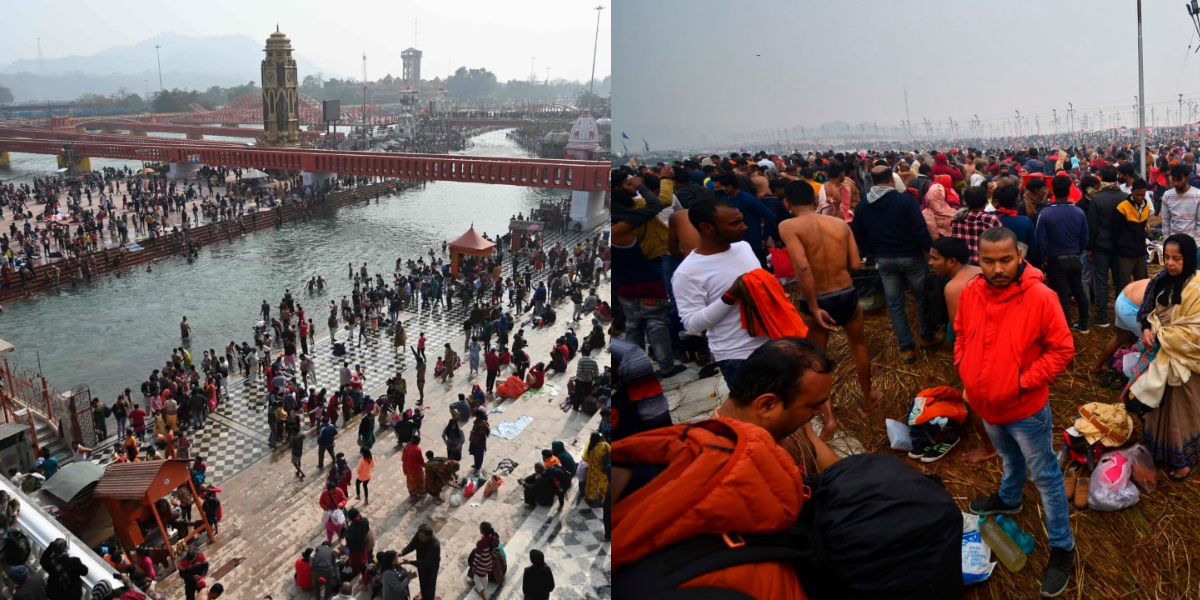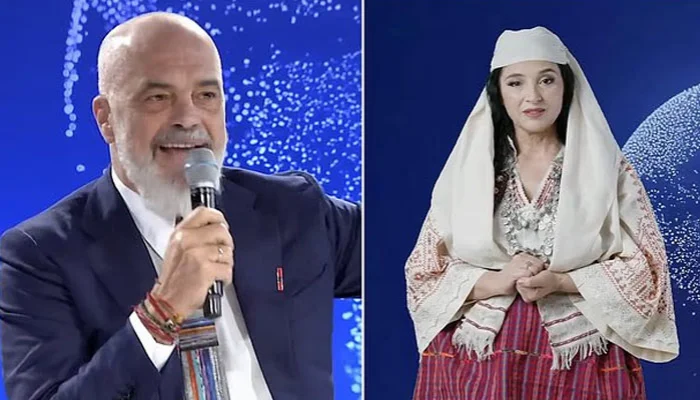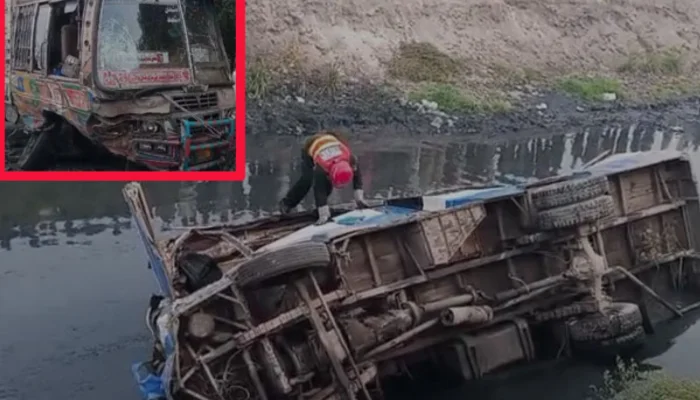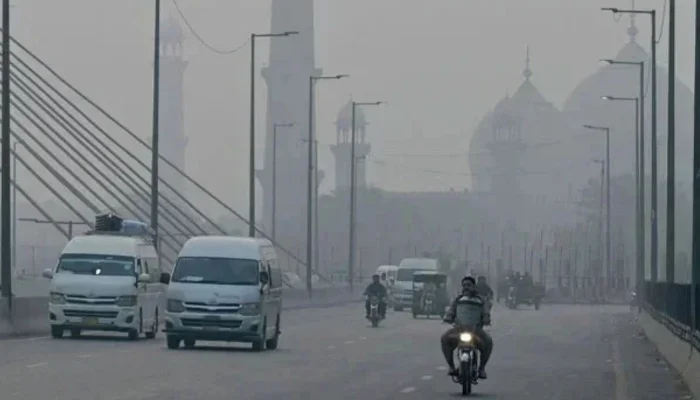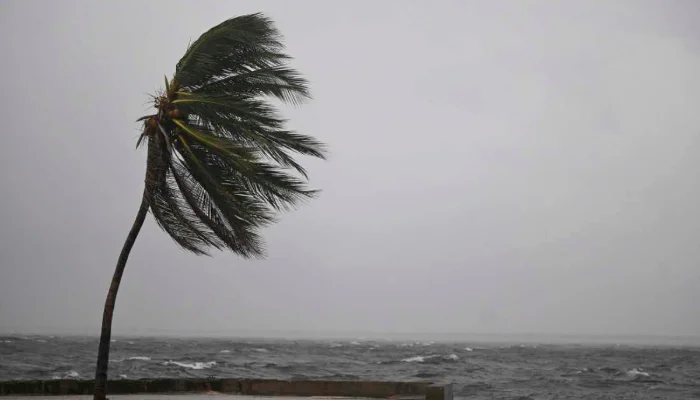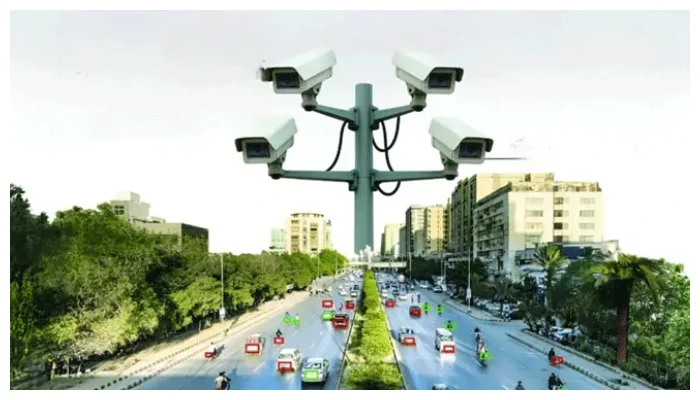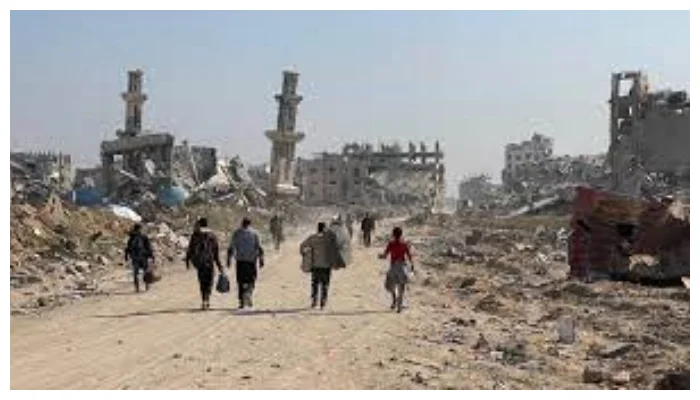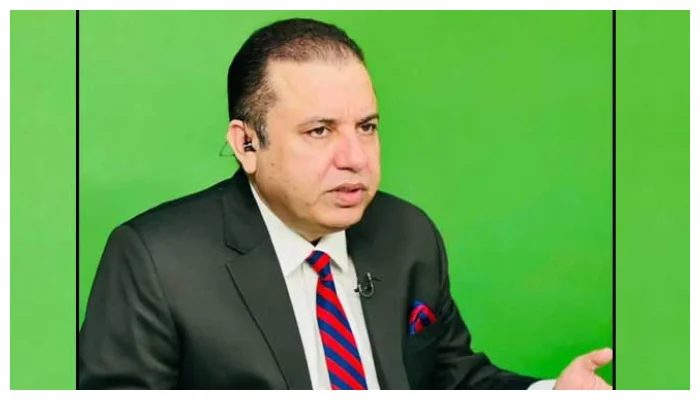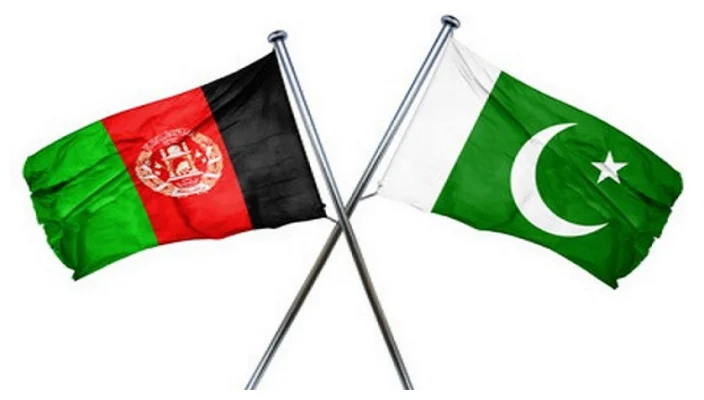India is again preparing to embrace the deadly wave of coronavirus, as scores of pilgrims gathered in West Bengal for the annual “Gangasagar Mela” despite concerns for the mounting Covid-19 pandemic cases.
Chief Minister of Bengal Mamata Banerjee welcomed devotees at Babu Ghat in Kolkata — where a large number of pilgrims started arriving from adjoining states — repeating the mistake of Prime Minister Narendra Modi of Kumbh Mela last year.
As the second wave of the coronavirus began in India in early April 2021, millions of Hindus congregated at Haridwar, a Himalayan city in Uttarakhand state, to take a holy dip in the Ganges.
The Indian government was widely criticised for allowing a large religious gathering, which caused an unprecedented rise in the coronavirus cases. Almost 484,000 people lost their lives due to the Covid-19 pandemic in India.

India has commenced Covid-19 booster shot campaign, while imposing a curfew in all major states but the government, despite taking preventive steps against rapidly escalating outbreak driven by the Omicron variant, is also allowing its citizens to participate in the Gangasagar Mela.
One million Hindu worshippers were expected to gather on the banks of the Ganges River for a holy bath on January 14 and 15 for the event, according to reports. India is repeating the same mistake as a similar big religious festival in the north of India last year helped spread the Delta variant that infected millions of people and killed tens of thousands.
It has been reported that last year’s deadly wave of infections in India was preceded by the huge 12-yearly Kumbh Mela, when millions of Hindus from all over the country descended on the banks of the Ganges River in the northern city of Haridwar.
Taking precautionary measures due to the Omicron, making tremendous disruption to the public life in the country, it has been reported that schools are closed, while funerals and weddings have limited gatherings. However, continuing with unmasked political rallies and permitting Gangasagar Mela will be more dreadful.

The former governor of Meghalaya, Tathagata Roy, criticised the government for implementing improper Covid-19 restrictions and at the same time approving the Gangasagar Mela.
“I am missing my morning walks in the Rabindra Sarobar Lakes. It beats me how walking in a wide open space can aggravate infection. Especially when Gangasagar Mela is being permitted. Also permitted are gatherings in the clubs. But no walking! Stupid!”
Is the Indian government oblivious of the consequences the country will have to face after this religious festival? Why are they conducting booster shot campaigns for the vulnerable people and frontline health workers, imposing lockdowns and curfews and then encouraging their citizens to attend the annual Gangasagar Mela festival?
“I urge the pilgrims not to overcrowd vehicles to reach Gangasagar Mela, wear double masks, follow Covid norms and cooperate with the administration,” Bengal Chief Minister Mamata Banerjee tweeted.

According to the data updated by NDTV on January 12, the active cases rose to 955,319, the highest in 209 days, while the death count climbed to 484,655 with 442 fresh fatalities.
The Union Health Ministry of India revealed that a total of 115 people died across the world due to the Omicron variant of Covid-19 so far, of which, one death has been reported in India.
Health experts have again warned that allowing the Gangasagar Mela, a religious gathering in Sagar Islands, at a time the country is in the throes of a third Covid-19 wave, could turn out to be a ‘super-spreader’ incident.
Recently, AFP revealed that an Indian court rejected a bid to cancel the Hindu festival, despite fears the vast gathering could spread coronavirus infections.
A Kolkata-based doctor Avinandan Mondal sought a court order to ban the festival over coronavirus concerns, with infection rates surging in a country that saw a deadly wave last year.
But the Kolkatta High Court rejected the request, instead asking the regional government, which estimated attendance at no more than 500,000 and supported the gathering, to issue advertisements, warning people about the risks of attending.
“People from all states in the country will attend the religious festival and take a holy dip,” environmentalist Subhash Dutta told AFP.
“They may carry variant viruses and this religious festival may end up being the biggest superspreader in the coming days,” he added.
Modi, however, seems to be quite calm with the current scenario of the country and tweeted: “Had extensive discussions on the prevailing Covid-19 situation. Reviewed the preparedness of healthcare infrastructure, the vaccination drive, including for youngsters between 15 and 18, and ensuring continuation of the non-Covid healthcare services.” However, AFP reported, daily case numbers are approaching the enormous figures seen last year, when thousands died each day and workers maintained round-the-clock funeral prayers for the mass cremation of virus victims.
Nearly 180,000 new infections were recorded overnight, up nearly six times from a week earlier, with several urban centres imposing night-time curfews and restrictions on public gatherings.
“We’ve seen the number of cases increasing,” said Sheetal Vaishnav, a doctor helping oversee Monday’s vaccinations at a clinic in the capital New Delhi. “It’s necessary that we start protecting our population more.”
People aged 60 and above with pre-existing medical conditions, health professionals, and other essential workers are all eligible for a booster nine months after their second jab.
“I want to keep myself safe in this pandemic, that’s why I got it,” said Sunil, a municipal worker who received his latest shot on Monday.
“Nothing happened in the first one, and nothing in the second one, what can go wrong with the third one?”
While commending the citizens, Modi tweeted: “India began administering precaution doses. Kudos to those who have got vaccinated today. I would request all those who are eligible to get vaccinated. As we all know, vaccination remains among the most effective means to fight Covid-19.”
Since India suffered from the worst coronavirus outbreak in the world last year, health workers have injected more than 1.5 billion vaccine doses, with teens aged 15 to 18 eligible since last week, as per AFP.
During the Delta outbreak, more than 200,000 people died within a few weeks, according to official figures. Experts believe the real number is several times higher.
That outbreak saw hospitals overwhelmed, oxygen run out and patients scramble to source medicine from depleted pharmacies.
A similar catastrophic situation could arise this time after the emergence of thousands of Hindus at the Gangasagar Mela.

“West Bengal crosses 100,000 active Covid-19 cases, recording a daily positivity rate of 32.35 per cent. But, we need Gangasagar Mela right now where 500,000 people will gather. We need civic polls right now. The lives of people don’t matter, what matters here is politics and power,” a Kolkata-based journalist Soumyajit Majumder tweeted.
Experts fear the number of new infections to come could test the country’s hospitals in a bleak rerun of last year’s catastrophe.
“This could potentially stress out healthcare systems to levels comparable to or worse than the second wave,” Gautam Menon, a professor at India’s Ashoka University who has worked on Covid infection modelling, told AFP last week.
— With inputs from AFP and NDTV

